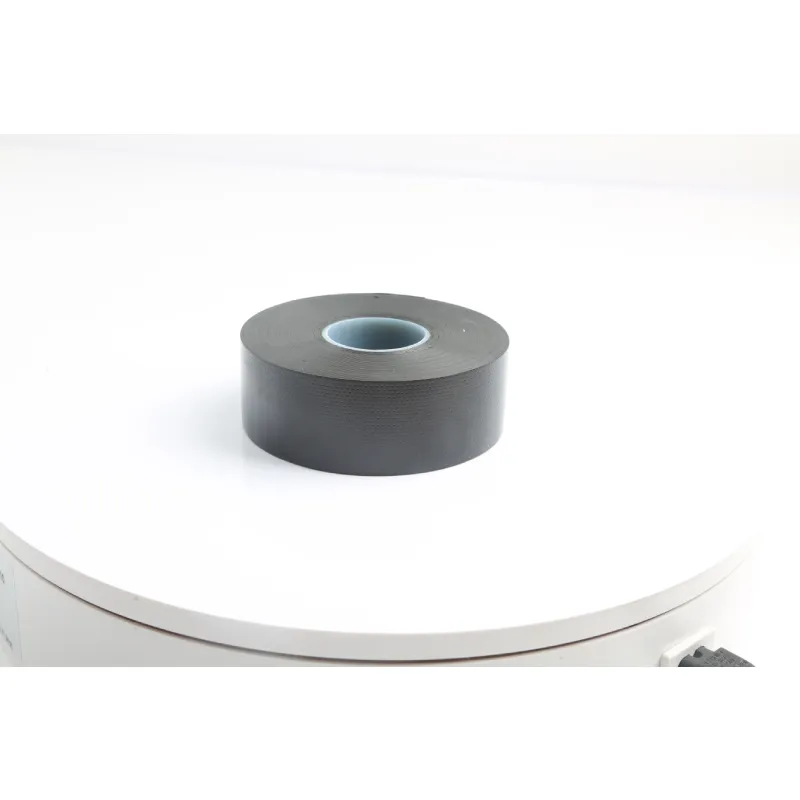The Role of Adhesive Cloth Tape in Automotive Wiring Harness Applications
In the world of automotive manufacturing, the integrity and functionality of wiring harnesses are critical to vehicle performance. Wiring harnesses are the backbone of electrical systems in cars, connecting various components to facilitate communication and power distribution. To ensure these harnesses remain effective and reliable, manufacturers utilize various materials, one of the most essential being adhesive cloth tape.
What is Adhesive Cloth Tape?
Adhesive cloth tape, often referred to as fabric tape or cloth-backed tape, is a flexible, durable tape made from a fabric substrate coated with a pressure-sensitive adhesive. This type of tape is known for its excellent conformability and durability, making it an ideal choice for automotive applications. The tape is designed to withstand high temperatures and harsh environmental conditions, ensuring that it retains its adhesive properties and structural integrity over time.
Why Use Adhesive Cloth Tape in Automotive Applications?
1. Protection Against Abrasion and Damage Wiring harnesses are often exposed to various mechanical stresses and environmental factors. Adhesive cloth tape serves as a protective layer, shielding the wires from abrasion, dust, moisture, and other potential hazards. This protection is vital in maintaining the longevity of the wiring harness.
2. Improved Organization Effective organization of wires is crucial in modern vehicles, where complex electrical systems are prevalent. Adhesive cloth tape aids in bundling and securing individual wires, preventing tangling or loosening during vehicle operation. This not only helps in the efficiency of assembly but also simplifies maintenance and troubleshooting.
3. Temperature Resistance Automotive environments can experience extreme temperatures, from scorching heat to freezing cold. Adhesive cloth tape is designed to withstand these temperature fluctuations, maintaining adhesion and performance even in challenging conditions.
4. Ease of Use The application of adhesive cloth tape is straightforward, allowing for quick installation and modifications. Technicians can easily cut the tape to the desired length and wrap it around the wiring harness, ensuring a secure fit and optimal coverage.
adhesive cloth automotive wiring harness tape

5. Noise Damping Properties In addition to its protective qualities, adhesive cloth tape can also dampen noise and vibrations transmitted through the wiring harness. This feature is especially important in automotive design, where reducing noise levels contributes to overall passenger comfort.
Choosing the Right Adhesive Cloth Tape
Not all adhesive cloth tapes are created equal, and choosing the right product is crucial for ensuring optimum performance. Factors to consider include
- Adhesive Type Depending on the specific requirements of the application, different adhesive types may be used. Some tapes are designed for high-temperature applications, while others may offer additional moisture resistance.
- Fabric Composition The type of fabric used in the tape can affect its durability and flexibility. Cotton, polyester, and other synthetic fabrics may be utilized based on their specific benefits.
- Thickness The thickness of the tape also plays a role in its protective qualities. Thicker tapes may offer enhanced protection against impacts and abrasions but could be bulkier in tight spaces.
- Environmental Resistance Ensure that the selected tape is suitable for the environmental conditions it will face. UV resistance, moisture resistance, and temperature tolerance are essential considerations.
Conclusion
Adhesive cloth tape plays a vital role in the automotive industry, particularly in the context of wiring harnesses. Its protective properties, ease of use, and adaptability to various conditions make it an indispensable tool for manufacturers and technicians alike. By effectively harnessing the benefits of adhesive cloth tape, automotive manufacturers can enhance the reliability and safety of their vehicles, ultimately leading to improved consumer satisfaction. As the automotive industry continues to evolve, the importance of such materials is likely to grow, helping to pave the way for more advanced and efficient vehicle designs.
-
XIANGFAN Rubber Tape-Ultimate Solutions for All Your Insulation NeedsNewsJun.24,2025
-
XIANGFAN Rubber Tape-Protection for Industrial and Residential ApplicationsNewsJun.24,2025
-
XIANGFAN Rubber Tape: Superior Safety and Sealing for Demanding EnvironmentsNewsJun.24,2025
-
XIANGFAN Rubber Tape: Reliable Solutions for Every Electrical ChallengeNewsJun.24,2025
-
XIANGFAN Electrical & Industrial Tape: Powering Reliability Across IndustriesNewsJun.24,2025
-
XIANGFAN Electrical & Industrial Tape: Excellence in Every ApplicationNewsJun.24,2025
